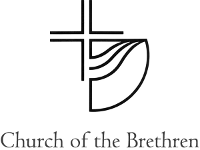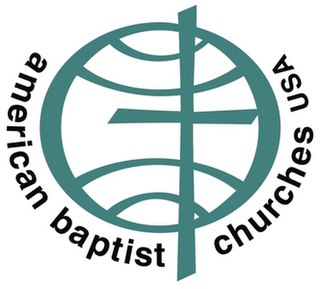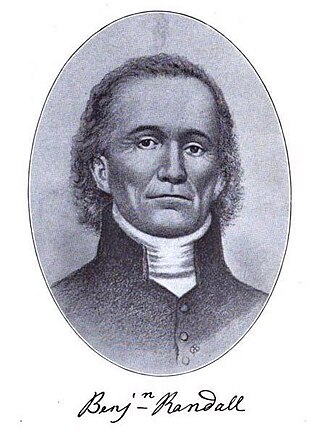The Treatise on the Faith and Practice of the Free Will Baptists is a document that outlines the basic doctrines, faith and practices of Free Will Baptists. The treatise was adopted in 1935 in Nashville, Tennessee.
On November 5, 1935, the two largest groups of Free Will Baptists, the Cooperative General Association and the General Conference of Free Will Baptists merged together to form the National Association of Free Will Baptists. [1]
Under the treatise, church government takes place at the congregational level. Local congregations voluntarily join local, state and national associations in order to facilitate missions, association colleges, new church planning and other activities.
The treatise is not binding on the member congregations. The Treatise describes the common beliefs and practices that bind the churches and most churches are expected to adopt the Treatise as a "Church Covenant."
The treatise was revised and republished in 1848. [2]
Baptists are a denomination of Christianity distinguished by baptizing only professing Christian believers and doing so by complete immersion. Baptist churches generally subscribe to the doctrines of soul competency, sola fide, sola scriptura and congregationalist church government. Baptists generally recognize two ordinances: baptism and communion.

The Christian Church (Disciples of Christ) is a mainline Protestant Christian denomination in the United States and Canada. The denomination started with the Restoration Movement during the Second Great Awakening, first existing during the 19th century as a loose association of churches working toward Christian unity. These slowly formed quasi-denominational structures through missionary societies, regional associations, and an international convention. In 1968, the Disciples of Christ officially adopted a denominational structure. At that time, a group of churches left in order to remain nondenominational.

The Church of the Brethren is an Anabaptist Christian denomination in the Schwarzenau Brethren tradition that was organized in 1708 by Alexander Mack in Schwarzenau, Germany during the Radical Pietist revival. The denomination holds the New Testament as its only creed. Historically, the church has taken a strong stance for nonresistance or Christian pacifism—it is one of the three historic peace churches, alongside the Mennonites and Quakers. Distinctive practices include believer's baptism by forward trine immersion; a threefold love feast consisting of feet washing, a fellowship meal, and communion; anointing for healing; and the holy kiss. Its headquarters are in Elgin, Illinois, United States.

The Southern Baptist Convention (SBC), alternatively the Great Commission Baptists (GCB), is a Christian denomination based in the United States. It is the world's largest Baptist organization, the largest Protestant, and the second-largest Christian body in the United States. The SBC is a cooperation of fully autonomous, independent churches with commonly held essential beliefs that pool some resources for missions.
The General Assembly of Unitarian and Free Christian Churches is the umbrella organisation for Unitarian, Free Christians, and other liberal religious congregations in the United Kingdom and Ireland. It was formed in 1928, with denominational roots going back to the Great Ejection of 1662. Its headquarters is Essex Hall in central London, on the site of the first avowedly Unitarian chapel in England, set up in 1774.

The American Baptist Churches USA (ABCUSA) is a Baptist Christian denomination established in 1907 as the Northern Baptist Convention, and named the American Baptist Convention from 1950 to 1972. It traces its history to the First Baptist Church in America (1638) and the Baptist congregational associations which organized the Triennial Convention in 1814.
The American Baptist Association (ABA) is a Landmark Baptist Christian association in the United States, with offices, book store and publishing house in Texarkana, Texas. One of the principal founders was Ben M. Bogard, a pastor of Antioch Missionary Baptist Church in Little Rock, Arkansas.
The General Association of Regular Baptist Churches (GARBC), established in 1932 is an Independent Baptist Christian denomination in United States, retaining the name "Regular Baptist". The association's home office is located in Elgin, Illinois.

The Old German Baptist Brethren (OGBB) is a Schwarzenau Brethren denomination of Anabaptist Christianity.
United American Free Will Baptist Conference, Inc. is the smaller of the two African-American Free Will Baptist conferences in the United States.

Free Will Baptists or Free Baptists are a group of General Baptist denominations of Christianity that teach free grace, free salvation and free will. The movement can be traced to the 1600s with the development of General Baptism in England. Its formal establishment is widely linked to the English theologian, Thomas Helwys who led the Baptist movement to believe in general atonement. He was an advocate of religious liberty at a time when to hold to such views could be dangerous and punishable by death. He died in prison as a consequence of the religious persecution of Protestant dissenters under King James I.
The National Association of Free Will Baptists (NAFWB) is a national body of Free Will Baptist churches in the United States and Canada, organized on November 5, 1935 in Nashville, Tennessee. The Association traces its history in the United States through two different lines: one beginning in the South in 1727 and another in the North in 1780. The "Palmer line," however, never developed as a formal denomination. It consisted of only about three churches in North Carolina. The NAFWB is the largest of the Free Will Baptist denominations.
General Baptists are Baptists who hold the general or unlimited atonement view, the belief that Jesus Christ died for the entire world and not just for the chosen elect. General Baptists are theologically Arminian, which distinguishes them from Reformed Baptists.

The Evangelical Free Church of America (EFCA) is an evangelical Christian denomination in the Radical Pietistic tradition. The EFCA was formed in 1950 from the merger of the Swedish Evangelical Free Church and the Norwegian-Danish Evangelical Free Church Association. It is affiliated with the International Federation of Free Evangelical Churches.
The Church of the Blessed Hope is a small first-day Adventist Christian body. The churches have common roots with the Christadelphians and the Church of God General Conference.
Approximately 15.3% of Americans identify as Baptist, making Baptists the second-largest religious group in the United States, after Roman Catholics. Baptists adhere to a congregationalist structure, so local church congregations are generally self-regulating and autonomous, meaning that their broadly Christian religious beliefs can and do vary. Baptists make up a significant portion of evangelicals in the United States and approximately one third of all Protestants in the United States. Divisions among Baptists have resulted in numerous Baptist bodies, some with long histories and others more recently organized. There are also many Baptists operating independently or practicing their faith in entirely independent congregations.
The Ohio Valley Association of the Christian Baptist Churches of God is a Holiness Baptist denomination in the Ohio Valley area of the United States. It was formed January 3, 1931 in Portsmouth, Ohio. Four churches—Firebrick Chapel of Firebrick, Kentucky; Westwood Mission of Ashland, Kentucky; Mabert Road Church and North Moreland Church, both of Portsmouth, Ohio—were the original constituents of the organization. In addition to the ministers of these churches, representatives from the Scioto Yearly Conference of Free Will Baptists and the Enterprise Association of Regular Baptists assisted in organizing the conference.

Baptists in Finland have existed since the middle of the 19th century. They are part of the Baptist branch of evangelical Christianity and belong to three different Finnish church associations. Swedish-speaking Finns formed the Swedish Baptist Union of Finland, while Finnish-speaking Baptists are united in the Finnish Baptist Church ; two Finnish congregations are a part of the Seventh Day Baptists. In addition, a few independent Baptist churches exist, including Grace Baptist Church in Tampere. The congregation was formerly known as Perinteinen Baptistiseurakunta in Finnish and International Baptist Church in English. Agape International Baptist Church in Pedersöre is also among the independent Baptist churches.








